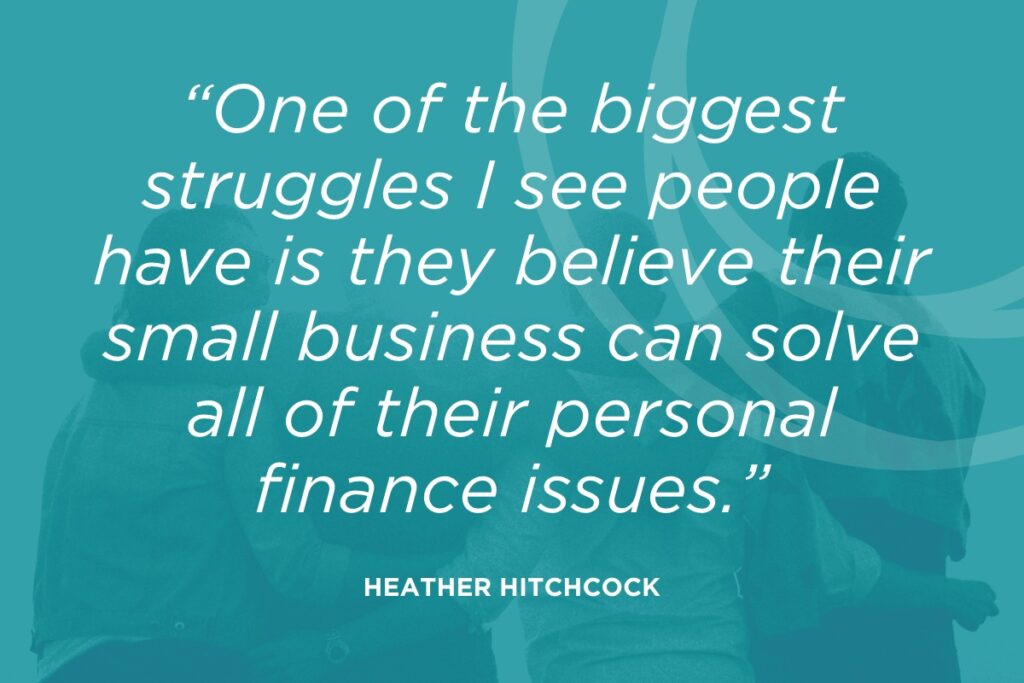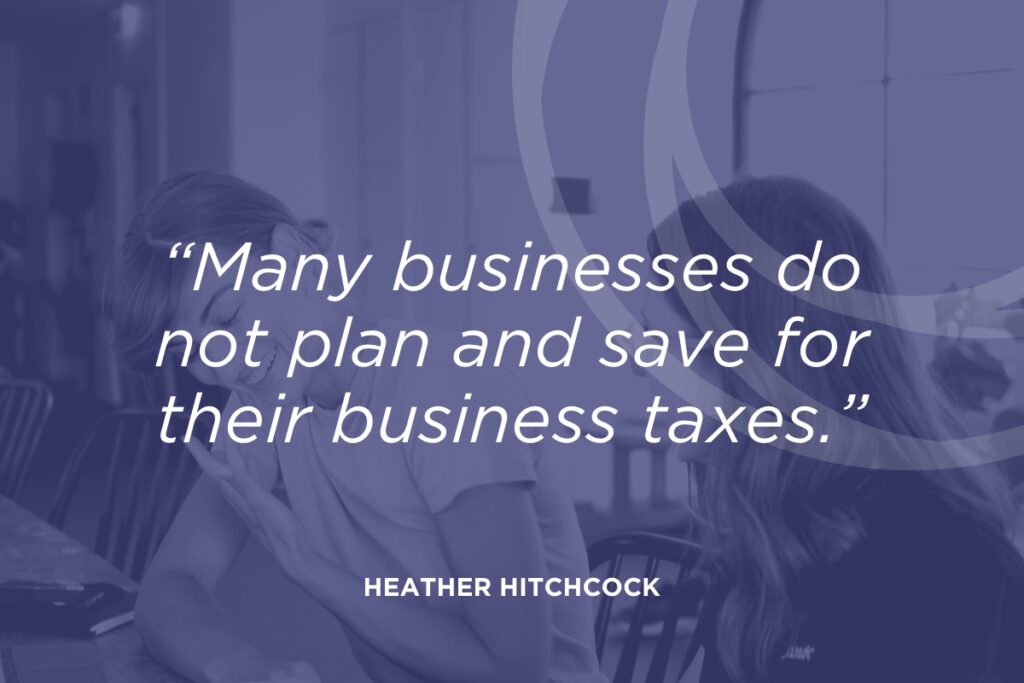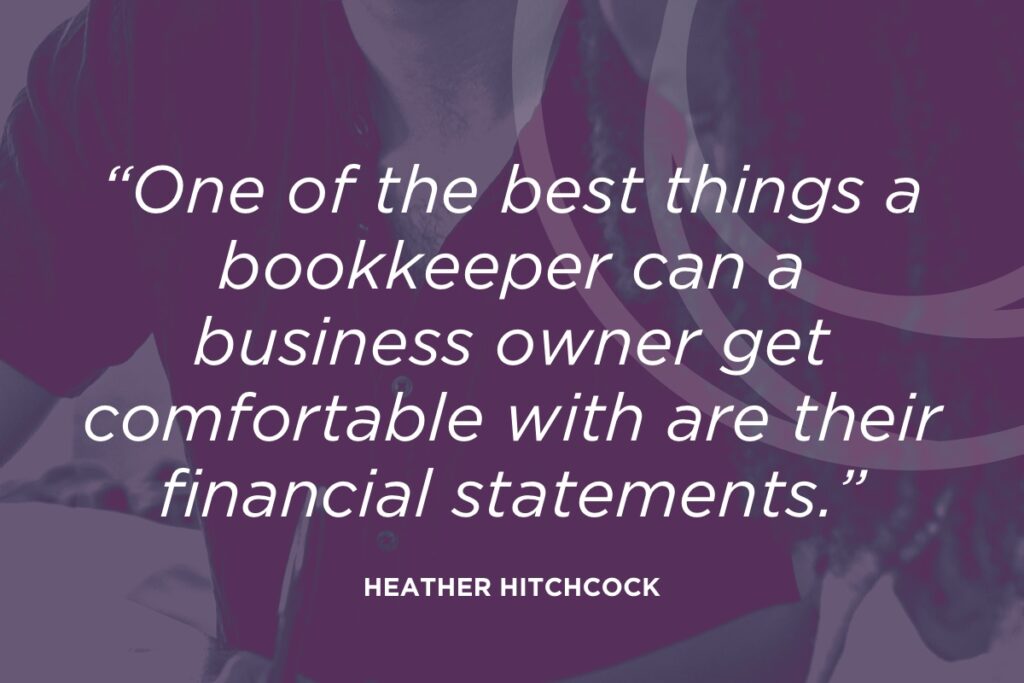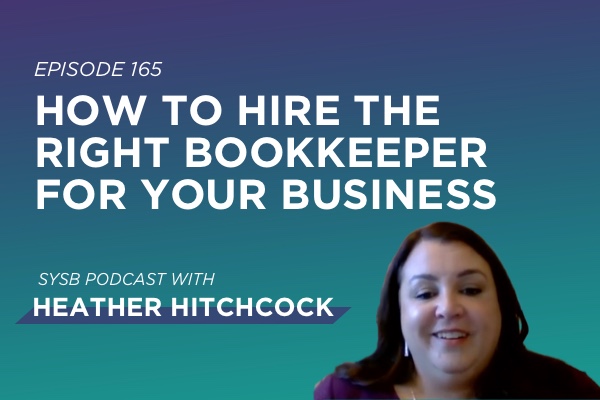Today’s guest on this Scale Your Small Business episode has a bachelor’s degree in computer science from Colorado State University with a master’s degree in professional accounting from Indiana University with 15 years and beyond years of experience in corporate accounting and personal finance. Her clients include retail, social media, nanny services, real estate, and trust management. She loves giving her clients confidence in their numbers so that they can achieve their dreams. Please welcome Heather Hitchcock to the show.
We have talked so many times on the show about how you need your team of people, whether you are an experienced business owner or just starting out. There are many questions that Heather can help all of our listeners with. Let’s dive into it!
Why is a bookkeeper so important for small businesses?
A bookkeeper is important because it’s the best way to know what you can actually pay yourself. They can help you understand how much money your business is making and how much money you can take home. If you’re somebody who’s got a side gig and you want to move to full-time, how do you know when you’re there? A bookkeeper can help you figure out when you’re there and can help you make a plan to get there.
When is the right time to hire a bookkeeper?
There are a lot of good times to bring in a bookkeeper. You can definitely bring one in at the very beginning. You could also do a one-off consultation to get your chart of accounts set up and your bookkeeping started. A bookkeeper can also help you set up your entity so that you know how to pay yourself. Another good time is when you start hiring employees so that you can handle all the payroll processing, make sure that it’s done correctly, and that taxes are getting paid.
A bookkeeper can kind of meet you at any level that you’re comfortable with. They can take over everything. For example, you can give them all the bank account logins and they can do all the AP and AR for you. They can bill everybody for you, do payroll, all your account reconciliations, and transfer your money. They can even create your annual budgets or it can totally be a one-off consulting thing. It’s not a one size fits all. It can be very customized.
What are some things that we should be looking for when we’re on the hunt to hire a bookkeeper?
The two biggest things that are most important are finding somebody that’s gonna be straight with you and push back when you know you’re overspending and the other is experience.
What are some of the main issues besides organization that you see when you coach small businesses?
One of the biggest struggles is they believe their small business can solve all of their personal finance issues. Any time they have a hiccup at home, they just take money from the business. Their business is there to provide them with an income, but an ideal situation would be to get yourself on a personal budget and take a set amount out. Many businesses do not plan and save for their business taxes. A really good habit to get into is just setting that money aside and tucking it somewhere where you can’t access it.
What’s the best way to protect ourselves as a business when we’re working with another person? We’re releasing all of our financial information over to them and if we’ve not chosen the right person, that could really be detrimental.
Your bookkeeper should have insurance for one and make sure they’re explaining everything to you. If there’s something you don’t understand, ask the questions. Don’t turn over everything to them and then just walk away. Make sure you check your statements every month. It’s totally normal and safe to let them pay bills, but make sure they don’t have the ability to just randomly pay themselves.
One of the best things a bookkeeper can a business owner get comfortable with are their financial statements. The more you review them together the more you start to understand what you’re looking at, what it means, and why you have all this income but don’t have cash in the bank. You could have a lot of income but after your expenses, you may not have that much left in the bank. Somebody who’s willing to teach you all of that and spend time going through that is really important.
The best advice is don’t co-mingle your business and personal finances. Use separate bank accounts for each.
There were so many good things we covered in this episode. We know that people really struggle with this stuff. We appreciate Heather spending time with us and helping clear the fog on so many of these different things!
Here’s where you can learn more about Heather:
- Heather Hitchcock
- Mainsail Financial Consulting
Website Links:
Show Notes





